On 10 November, this one-day workshop will look at the interpretation of (revealed) preferences and preference-based modeling in economics.
The Centre for Philosophy of Natural and Social Sciences at the London School of Economics will host a one-day workshop on the interpretation of (revealed) preferences and preference-based modeling in economics. The methodology of revealed preference approaches and their associated behavioral interpretation of preference have been subject to seemingly devastating, long-standing criticisms from both philosophers and economists, but continue to be prevalent in economics. The talks in this workshop will explore both defenses of and alternatives to revealed preference approaches, and tackle larger questions about the methodology of economics, particularly questions around the nature and role of intention-based modeling.
Programme
Saturday 10 November 2018, Parish Hall, LSEOrganisers: Johanna Thoma (LSE), Kate Vredenburgh (Harvard) |
|||
| 9:30 | Coffee and Welcome | PAR 2.03 | |
| 10:00 | Christopher Clarke (Cambridge and Erasmus University Rotterdam): “The Psychological Content of Economic Models of Choice Behaviour” Abstract
Comments: Chloé de Canson (LSE) |
PAR 2.03 | |
| 11:10 | Kate Vredenburgh (Harvard): “An Interventionist Defense of Hypothetical Revealed Preferences” Abstract
Comments: David Kinney (LSE) |
PAR 2.03 | |
| 12:20 | Marco Mariotti (Queen Mary): “Revealed Preference Theory and Bounded Rationality” Abstract
Comments: Joe Roussos (LSE) |
PAR 2.03 | |
| 13:20 | Lunch Break (food provided) | LAK.G01C | |
| 14:30 | Johanna Thoma (LSE): “Decision Theory, Folk Psychology, and the Interpretation of Preference” Abstract
Comments: Micha Gläser (Universität Zürich) |
PAR 2.03 | |
| 15:40 | Christian List (LSE): “Representing moral choice dispositions: from moral preferences to moral reasons” Abstract
Comments: Lukas Beck (Cambridge University) |
PAR 2.03 | |
| 16:40 | Coffee Break | PAR 2.03 | |
| 17:00 | Roberto Fumagalli (King’s College London): “Rationality, Normativity and Degenerate Intentions: Why Rational Choice Theory is not Self-Defeating” Abstract
Comments: Ryan Doody (Groningen) |
PAR 2.03 | |
| 18:00 | Drinks | The Ship Tavern | |
The workshop is free and open to the public, but registration is much appreciated. Please register on philevents or email Kate Vredenburgh to register.
Location
All talks take place in room 2.03 of Parish Hall, LSE.
For further help finding your way to LSE, see the LSE Maps and Directions website.
Childcare
LSE offers convenient childcare services near campus. Visit the LSE Nursery Homepage for more information and to apply.
Abstracts
Christopher Clarke: “The Psychological Content of Economic Models of Choice Behaviour”
Mentalists and behaviourists disagree over the psychological content of economic models of choice behaviour. But the discussion between mentalists and behaviourists is lacking in two ways, I argue. First, the participants in this discussion don’t make explicit what they mean by the content of an economic model. I show how to make this concept explicit in a way that ensures that the mentalist behaviourist debate remains methodologically important. Second, the participants don’t make explicit what they mean by a psychological state, nor what they mean by choice behaviour. Making these concepts explicit shows that the traditional two-part distinction (mentalism versus behaviourism) won’t do. Instead, there are three fundamentally different ways of interpreting economic models of choice behaviour
Roberto Fumagalli: “Rationality, Normativity and Degenerate Intentions: Why Rational Choice Theory is not Self-Defeating”
The critics of rational choice theory (henceforth, RCT) frequently claim that RCT is self-defeating in the sense that agents who abide by RCT’s prescriptions are less successful in satisfying their preferences than they would be if they abided by some theory of rational choice other than RCT. In this paper, I combine insights from philosophy of action, philosophy of the cognitive sciences and the normative foundations of RCT to rebut this often-made criticism. I then explicate the implications of my thesis for the wider philosophical debate concerning the normativity of RCT for both ideal agents who can form and revise their intentions instantly without cognitive costs and real-life agents who have limited control over the formation and the dynamics of their own intentions.
Representing moral choice dispositions: from moral preferences to moral reasons
An agent’s “practical moral judgments” can be defined as the agent’s judgments as to which options (e.g., actions) can be permissibly chosen in various contexts. How can such moral judgments be cognitively represented? Clearly, a purely extensional approach – simply storing a database in memory which explicitly encodes which options are permissible in each context – is not very efficient or feasible in general, and it would also make the acquisition of moral judgments (“moral learning”) informationally far too demanding. A more promising approach is the “consequentialization approach”, familiar from traditional utilitarianism and much-discussed in formal ethics. According to it, an agent represents his or her moral judgments in terms of a universal betterness ordering over the options that he or she might encounter – in effect, a “moral preference ordering” – and then takes the morally permissible options in each context to be the most highly ranked feasible ones. This approach mirrors the revealed-preference approach to the rationalization of choices. Although this approach constitutes a clear improvement over the purely extensional approach, it still has significant limitations. First of all, consequentialist representations of moral judgments are not always possible, because of the non-consequentialist or relativist nature of those judgments; and secondly, consequentialist representations are cumbersome and not very illuminating, especially when the number of possible options is large. We argue that moral judgments can be more plausibly represented in terms of a “reasons structure”: a specification of which properties are morally relevant in each context, and how choice-worthy different bundles of properties are. This way of representing moral judgments not only offers greater power and flexibility, but it also suggests a plausible mechanism for moral learning: agents come to acquire a reasons structure, perhaps on the basis of a limited database of moral experiences (a “learning database”), and they then extrapolate the moral judgments encoded in this reasons structure to new contexts. This talk is based on joint work with Franz Dietrich. A background paper is available at: http://eprints.lse.ac.uk/75232/
Marco Mariotti: “Revealed Preference Theory and Bounded Rationality”
We argue that the standard “revealed preference” methodology can be extended to dispense with the assumption that agents are preference maximisers, or even with the assumption that there are any preferences at all. All we need to assume is that there are stable “psychologies” that motivate behaviour. The same methodology applies to simple choice data, to complex choice data and to non choice data. From this perspective, preference maximisation appears to be just a special case of a large diversity of psychologies and behaviours. It should not have a special status. Agents are what they are, and they may not be what economists want them to be. The richness of human psychologies can be captured by the richness of available data.
Johanna Thoma: “Decision Theory, Folk Psychology, and the Interpretation of Preference”
It has become a platitude amongst philosophical decision theorists and philosophers of the social sciences that decision theory is and should be in the business of providing folk psychological explanations, and that it can only do so if we understand the preferences that feature in decision theoretic models as ascriptions of mental states not reducible to choice. This stands in stark contrast to the behavioural interpretations of preference still common in economics. This paper argues that even those who strive to provide folk psychological explanations should side with the economists, and adopt a behavioural interpretation of the preferences featuring in decision theoretic models. I argue first, that under a mentalistic interpretation of preference, decision theoretic models involve controversial enough commitments about the mental causes of choice to not only fail to capture much unreflective decision-making, but also many intentional, reason-based and instrumentally rational choices. Second, even in the cases where ascriptions of mentalistic preferences of the type presupposed by these models are warranted, the mentalistic interpretation of preference in fact does not have an advantage over the behavioural interpretation when it comes to giving folk psychological explanations after all: In both cases, satisfactory folk psychological explanation only comes from inferring more fundamental conative attitudes from a pattern of preferences. And thirdly, in fact, the behavioural interpretation can support folk psychological explanations with the help of decision theoretic models even in the class of cases where the mentalistic interpretation of preference would render decision theory inapplicable.
Kate Vredenburgh, “An Interventionist Defense of Hypothetical Revealed Preferences”
Revealed preference approaches face a number of seemingly devastating challenges. This paper discusses one such challenge, namely, that revealed preferences cannot causally explain an agent’s choice behavior. Using an example from Schelling (1971), this paper argues that not only can revealed preferences explain an agent’s choices, but they sometimes do so better than explanations that represent psychological preferences. Since revealed preferences are multiply realizable, they are more abstract, and hence, better.




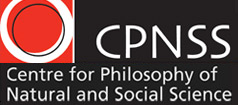


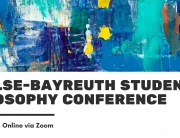
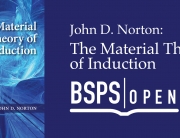


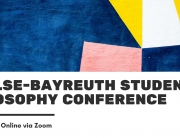
























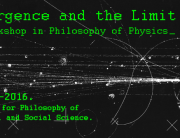
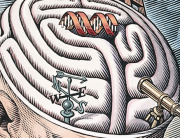










Connect with us
Facebook
Twitter
Youtube
Flickr